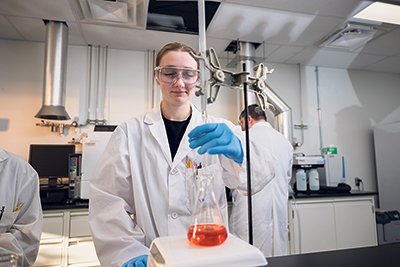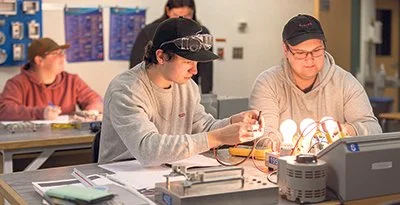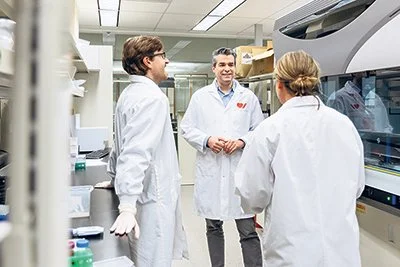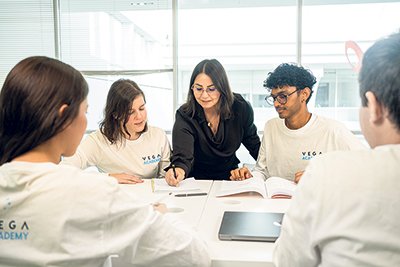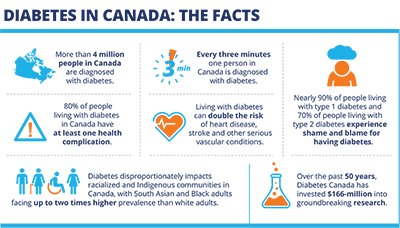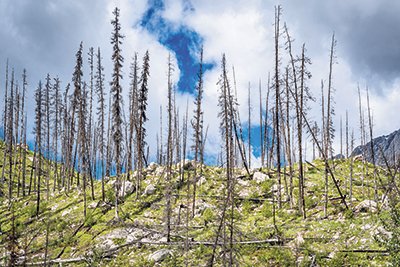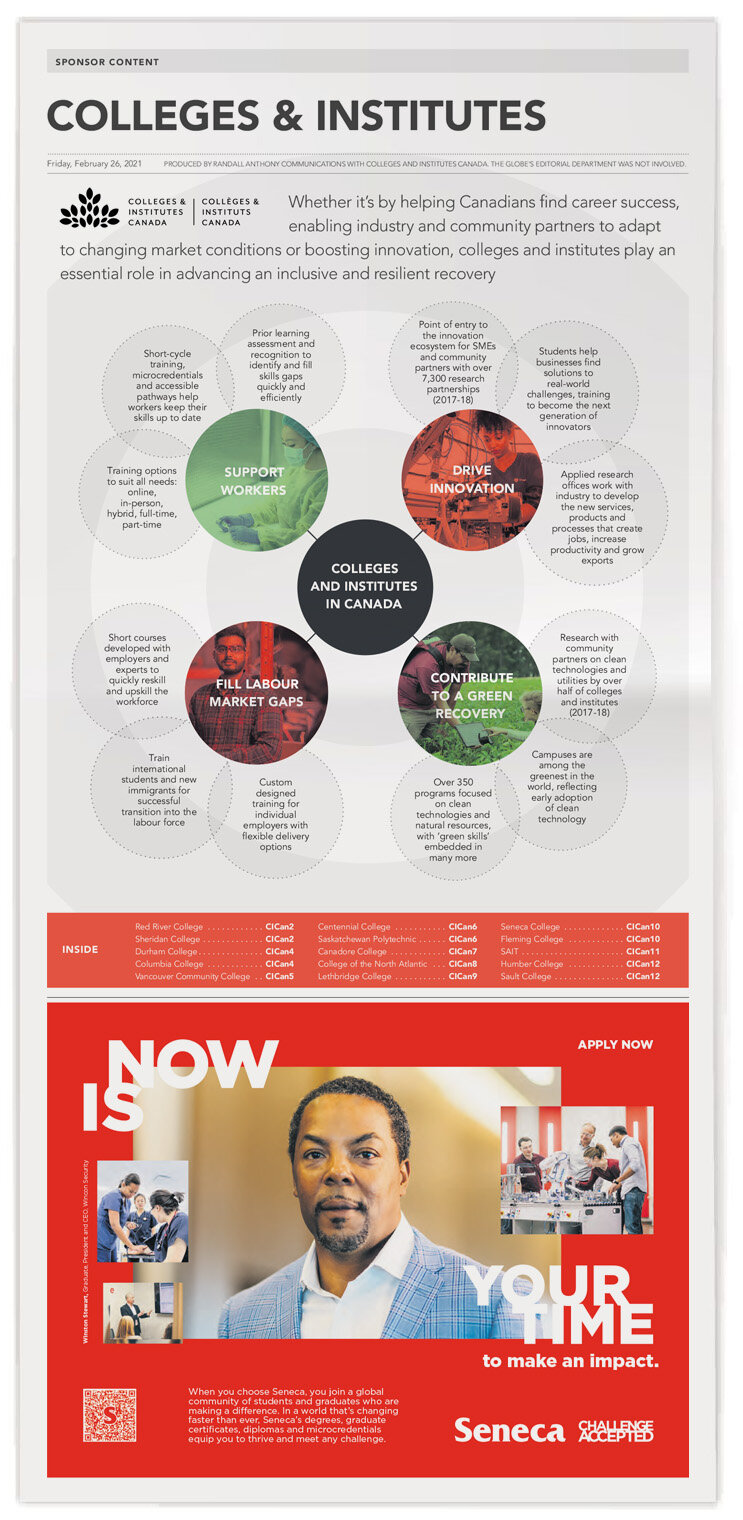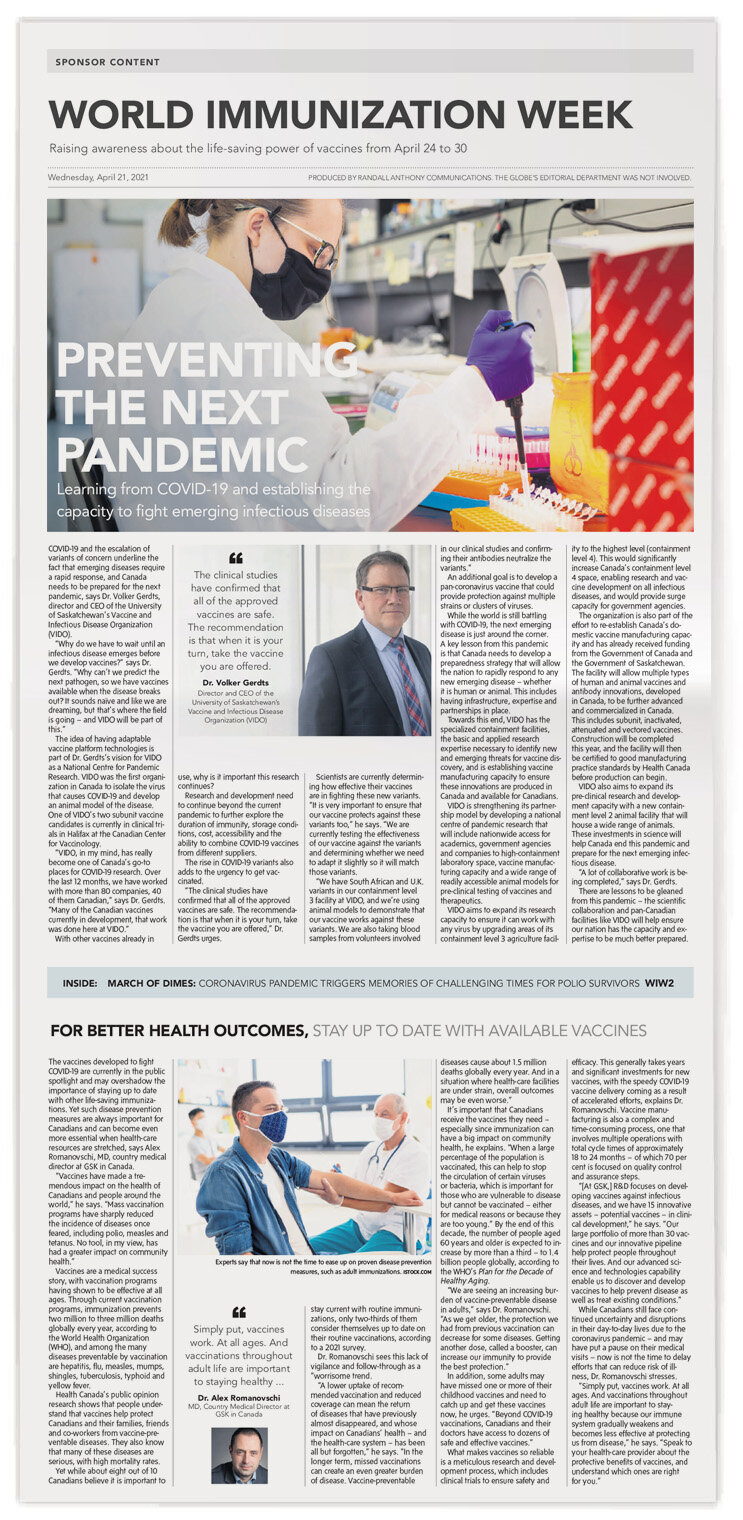GLOBE AND MAIL
PUBLICATIONS
Print and digital special features
We publish over 70 print and digital special features annually in The Globe and Mail covering a broad array of topics. Here are a few examples:

See our most recent publications
Click on the examples below to view our most recent Globe and Mail special features:
As Canada faces a number of significant challenges including economic uncertainty, post-secondary education plays a vital role in improving outcomes – and helping learners, industry, communities and society overall adapt to changing conditions.
As governments and industry move forward with a wave of new infrastructure projects, Canada is confronting a growing shortage of skilled trades workers. Alberta alone is short an estimated 22,000 workers, a figure that is expected to rise, says Rob Thompson, vice-president of manufacturing west at NOVA Chemicals.
Shaminder Singh Parmar can trace a direct line between his fulfilling career as a senior urban planner for Edmonton Public Schools and his MBA studies at the Thompson Rivers University (TRU) Bob Gaglardi School of Business and Economics.
February is Heart Month. And the conversation about heart health isn’t just timely, it is urgent. After all, more than half of Canadians are personally impacted by heart disease or stroke, according to a 2024 Heart & Stroke poll.
The transition between grade 12 and first-year university can be challenging due to a long-recognized gap learners have to navigate on their journey to post-secondary success. The rapid rise of AI has further exacerbated this chasm: at a time when students can generate instant answers, the ability to reason, verify and refine their work with integrity has become all the more crucial.
A fun fact that I absolutely love sharing with folks I meet in my professional (and personal) life is that we at Diabetes Canada are the proud owners and caretakers of the Banting House National Historic Site in London, Ontario. The house belonged to Dr. Frederick Banting, and it’s the place where he woke up one stormy night in 1920 with a brilliant idea that ultimately led to the discovery of insulin.
Canada’s wealth management landscape is undergoing a significant transformation, driven not only by market volatility but by a rapidly growing, sophisticated clientele: the incorporated professional and small business owner.
The Canadian government has initiated an ambitious program to rapidly rearm the Canadian Armed Forces (CAF) while trying to jumpstart a sluggish domestic economy. The centrepiece of the effort is the newly announced Defence Investment Agency (DIA). Modelled after the Housing Task Force, the DIA is designed to short-circuit the labyrinthine bureaucracy that has long plagued military procurement.
Amii turns breakthroughs into meaningful action, deploying responsible technology to benefit our health, environment and communities
The recipe for wildfire – which applies everywhere on Earth – requires three ingredients: vegetation (fuel), ignition and conducive fire weather. While all three are subject to change, trends in extreme fire weather cause particular alarm. In Canada, the average area burnt annually by wildfires has quadrupled since the 1970s. In the past three years alone, almost 8 per cent of the country’s forests have burned.
Advancing a resource project from exploration to production requires steps that range from securing financial and community support to navigating regulatory requirements. Almost inevitably, the process is lengthy, with various factors determining progress.
Canada’s nuclear sector is calling for immediate federal and provincial action to overhaul regulatory processes and clarify financing, warning that bureaucratic delays could derail the massive energy expansion needed to meet national climate goals.
On a Canadian investment landscape increasingly defined by a search for lower costs and greater control, exchange-traded funds (ETFs) are cementing their status as the dominant growth engine.
Settling the great debate – Team Cat or Team Dog
In Nova Scotia, about 8,800 charities and non-profits work to support the one million residents in Canada’s second smallest province. Through Nova Scotia Gives, GivingTuesday is an opportunity not only for fundraising but also to recognize and celebrate the contribution of philanthropy throughout the year.
Over the last few years, researchers across the country have been building something that will help change cancer research and care in Canada. The Gold Cohort is Canada’s largest and most complete cancer case resource and includes data from thousands of diverse cancer patients treated in centres across the country.
Canada is undertaking bold nation-building projects to secure our future. Today, Canadians have a rare opportunity to be part of one of the most significant conservation opportunities in our country’s history: one that delivers economic and environmental benefits across the country and around the world.
In the face of a changing relationship with our southern neighbour, Canada is on the cusp of rewriting its trade, defence and infrastructure story for the next century. This will mean new investments and opportunities as the country aims to make itself more efficient and productive. Economic prosperity will rely, first and foremost, on enterprising Canadians putting their skills to work.
Branksome Hall is a leader in science, technology, engineering, arts and math (STEAM) education, with programs, curriculum and partnerships that foster creativity, problem-solving and critical thinking in its students.
A powerful encounter between Heart & Stroke-funded researchers and the people whose lives were saved through their work
Over 3.5 million people in Canada – across ages, ethnicities and genders – are affected by heart disease and stroke.
For Mike and Martha Pedersen, conservation is more than a cause – it’s a way of life. “Conservation feels like a very tangible way to make a difference,” says Martha. Having a relationship with nature is what makes their life richer.
University of Saskatchewan advancing ‘package of solutions’ for farmers and food security
Wheat – a vital food crop that feeds billions of people worldwide – plays an important role in food security. Estimates place global wheat production at nearly 800 million tonnes this year, volumes that can be achieved, in large part, due to targeted breeding of high-yielding cultivars.
“This looks absolutely fantastic. Yet another amazing job by Randall and team.”

